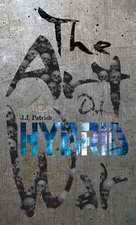Countering Terrorism: No Simple Solutions
Autor Martha Crenshaw, Gary LaFreeen Limba Engleză Paperback – 22 noi 2016
Can We Construct a Grand Strategy to Counter Terrorism?
Fifteen years after September 11, the United States still faces terror threats—both domestic and foreign. After years of wars, ever more intensive and pervasive surveillance, enhanced security measures at major transportation centers, and many attempts to explain who we are fighting and why and how to fight them, the threats continue to multiply. So, too, do our attempts to understand just what terrorism is and how to counter it.
Two leaders in the field of terrorism studies, Martha Crenshaw and Gary LaFree, provide a critical look at how we have dealt with the terror threat over the years. They make clear why it is so difficult to create policy to counter terrorism. The foes are multiple and often amorphous, the study of the field dogged by disagreement on basic definitional and methodological issues, and the creation of policy hobbled by an exacting standard: the counterterrorist must succeed all the time; the terrorist only once. As Countering Terrorism shows, there are no simple solutions to this threat.
Fifteen years after September 11, the United States still faces terror threats—both domestic and foreign. After years of wars, ever more intensive and pervasive surveillance, enhanced security measures at major transportation centers, and many attempts to explain who we are fighting and why and how to fight them, the threats continue to multiply. So, too, do our attempts to understand just what terrorism is and how to counter it.
Two leaders in the field of terrorism studies, Martha Crenshaw and Gary LaFree, provide a critical look at how we have dealt with the terror threat over the years. They make clear why it is so difficult to create policy to counter terrorism. The foes are multiple and often amorphous, the study of the field dogged by disagreement on basic definitional and methodological issues, and the creation of policy hobbled by an exacting standard: the counterterrorist must succeed all the time; the terrorist only once. As Countering Terrorism shows, there are no simple solutions to this threat.
Preț: 284.90 lei
Nou
Puncte Express: 427
Preț estimativ în valută:
54.52€ • 56.58$ • 45.57£
54.52€ • 56.58$ • 45.57£
Carte tipărită la comandă
Livrare economică 15-29 martie
Preluare comenzi: 021 569.72.76
Specificații
ISBN-13: 9780815727644
ISBN-10: 081572764X
Pagini: 260
Dimensiuni: 152 x 229 x 22 mm
Greutate: 0.45 kg
Editura: Brookings Institution Press
Colecția Brookings Institution Press
ISBN-10: 081572764X
Pagini: 260
Dimensiuni: 152 x 229 x 22 mm
Greutate: 0.45 kg
Editura: Brookings Institution Press
Colecția Brookings Institution Press
Notă biografică
Martha Crenshaw is a senior fellow at the Center for International Security and Cooperation (CISAC) and the Freeman Spogli Institute for International Studies, as well as professor of political science, by courtesy, at Stanford University. She is also professor of government emerita at Wesleyan University and a lead investigator with the National Consortium for the Study of Terrorism and the Responses to Terrorism (START) at the University of Maryland.
Gary LaFree is professor of criminology and criminal justice and director of the National Consortium for the Study of Terrorism and Responses to Terrorism (START) at the University of Maryland. He is a past president of the American Society of Criminology, a member of the Attorney General’s Science Advisory Board, and a member of the National Academy of Sciences Committee on Law and Justice.
Gary LaFree is professor of criminology and criminal justice and director of the National Consortium for the Study of Terrorism and Responses to Terrorism (START) at the University of Maryland. He is a past president of the American Society of Criminology, a member of the Attorney General’s Science Advisory Board, and a member of the National Academy of Sciences Committee on Law and Justice.
Descriere
Can We Construct a Grand Strategy to Counter Terrorism?
Fifteen years after September 11, the United States still faces terror threats—both domestic and foreign. After years of wars, ever more intensive and pervasive surveillance, enhanced security measures at major transportation centers, and many attempts to explain who we are fighting and why and how to fight them, the threats continue to multiply. So, too, do our attempts to understand just what terrorism is and how to counter it.
Two leaders in the field of terrorism studies, Martha Crenshaw and Gary LaFree, provide a critical look at how we have dealt with the terror threat over the years. They make clear why it is so difficult to create policy to counter terrorism. The foes are multiple and often amorphous, the study of the field dogged by disagreement on basic definitional and methodological issues, and the creation of policy hobbled by an exacting standard: the counterterrorist must succeed all the time; the terrorist only once. As Countering Terrorism shows, there are no simple solutions to this threat.
Fifteen years after September 11, the United States still faces terror threats—both domestic and foreign. After years of wars, ever more intensive and pervasive surveillance, enhanced security measures at major transportation centers, and many attempts to explain who we are fighting and why and how to fight them, the threats continue to multiply. So, too, do our attempts to understand just what terrorism is and how to counter it.
Two leaders in the field of terrorism studies, Martha Crenshaw and Gary LaFree, provide a critical look at how we have dealt with the terror threat over the years. They make clear why it is so difficult to create policy to counter terrorism. The foes are multiple and often amorphous, the study of the field dogged by disagreement on basic definitional and methodological issues, and the creation of policy hobbled by an exacting standard: the counterterrorist must succeed all the time; the terrorist only once. As Countering Terrorism shows, there are no simple solutions to this threat.
Cuprins
"
Contents:
Preface
1. Introduction: The Context for Analyzing Counterterrorism Difficulties—Current Threats and the State of Academic Research
2. Overresponding to Rare Events: The Problem of Uncommon Threats with Irreversible Consequences
3. The Tip of the Iceberg: Accounting for Failed and Foiled Terrorist Plots
4. Pinning Down an Elusive Adversary: What Is a Terrorist Organization?
5. Who Did It? The Attribution Dilemma
6. Counterterrorism Results: Can Effectiveness be Evaluated?
7. Moving Forward
Notes
Index
"Preface
1. Introduction: The Context for Analyzing Counterterrorism Difficulties—Current Threats and the State of Academic Research
2. Overresponding to Rare Events: The Problem of Uncommon Threats with Irreversible Consequences
3. The Tip of the Iceberg: Accounting for Failed and Foiled Terrorist Plots
4. Pinning Down an Elusive Adversary: What Is a Terrorist Organization?
5. Who Did It? The Attribution Dilemma
6. Counterterrorism Results: Can Effectiveness be Evaluated?
7. Moving Forward
Notes
Index
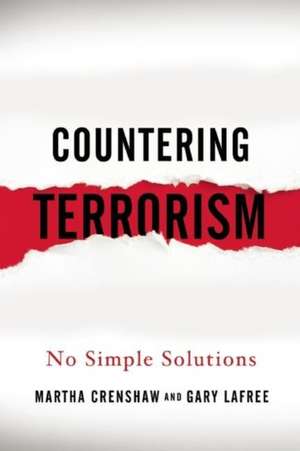

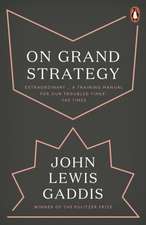



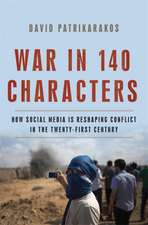


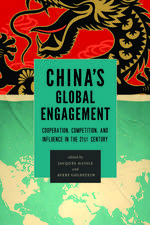
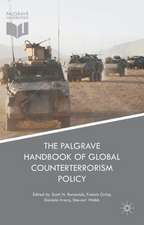

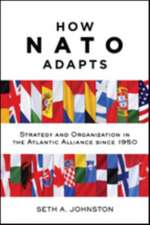

![American Military Life in the 21st Century [2 Volumes]: Social, Cultural, and Economic Issues and Trends](https://i3.books-express.ro/bt/9781440855184/american-military-life-in-the-21st-century-2-volumes.jpg)






